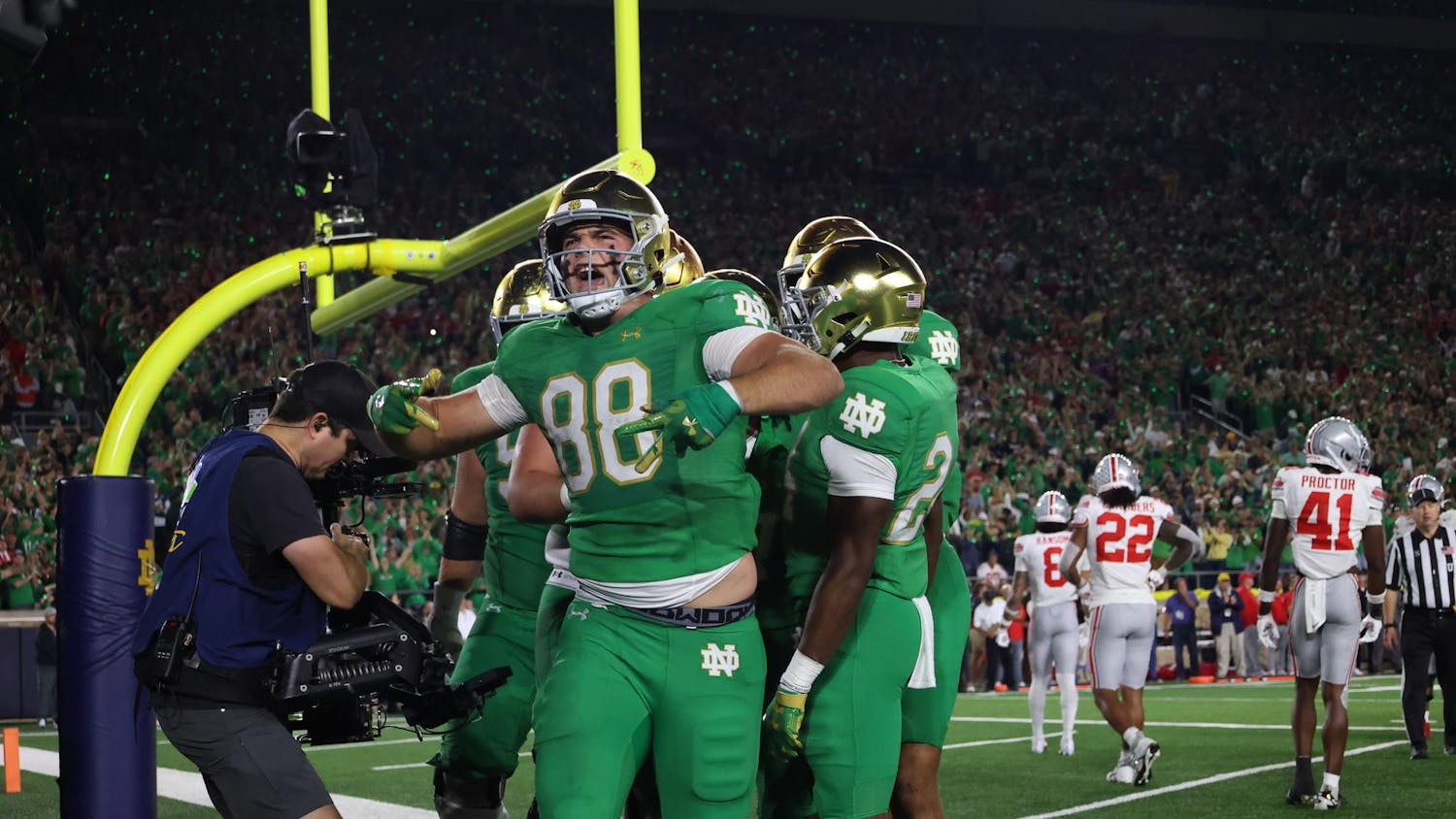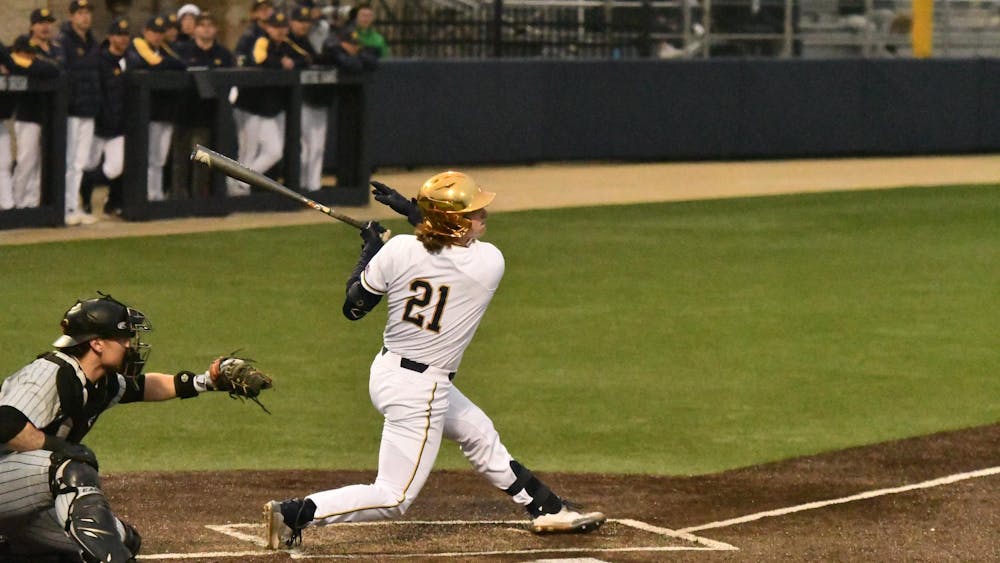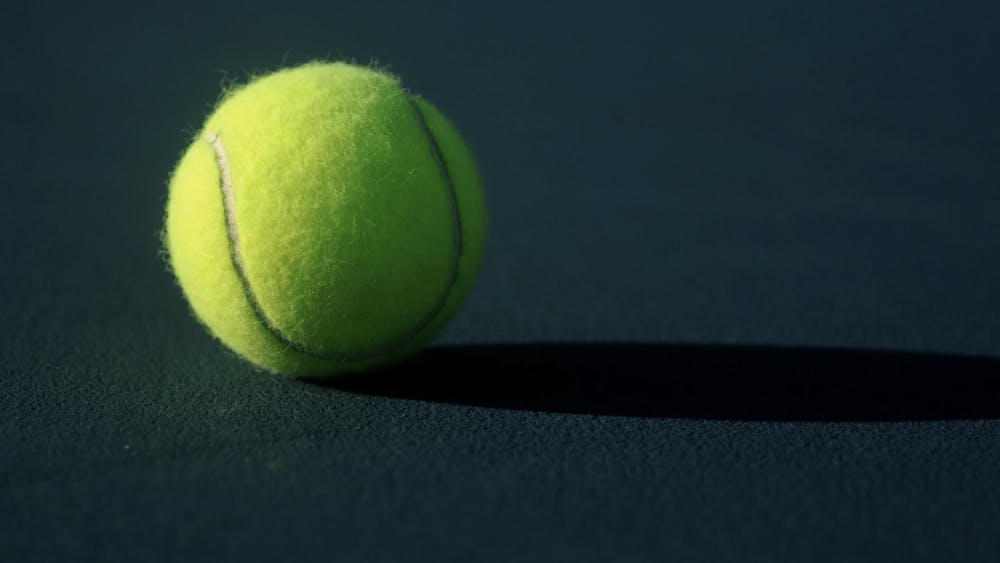Entering this year’s NCAA tournament, Notre Dame had been to the Final Four in five consecutive seasons. And after another sweep of ACC regular season and tournament titles, a sixth straight trip appeared inevitable for the Irish.
But then, the unthinkable happened: the No. 1-seeded Irish fell to No. 4-seeded Stanford, 90-84, in the Sweet 16, bringing an stunning end to Notre Dame’s season.
Most people would consider such an early exit from the NCAA tournament the spoiler of what could otherwise be considered a strong season. But that wasn’t the case for Irish head coach Muffet McGraw.
“Definitely a successful season,” McGraw said. “We went through it with just one loss [and] won the ACC tournament and regular season for the third consecutive year.
“ … We had some individual successes as well. I can appreciate them looking back on them now, and the fact that we lost earlier than we wanted to in the NCAA tournament doesn’t take away from the fact that it was a really good season. We were, of course, really disappointed, and I think it’s going to motivate us in a good way for next year.”
Despite being a perennial title contender, the Irish (33-2, 16-0 ACC) entered the season with questions due to the early departure of former guard Jewell Loyd — the team’s leading scorer the previous season — who would go on to be the top pick in this past year’s WNBA Draft. Then, adversity continued to strike the team, as freshman guard Ali Patberg tore her ACL in training camp and junior forward Taya Reimer left the team just nine games into the season.
Yet, the Irish kept stride, dropping only one game during the regular season, and seemingly turning every obstacle they faced into another stepping stone on its path to another No. 1 seed in the NCAA tournament.
“It had a huge positive impact on the team,” McGraw said of the team’s early challenges. “I think they handled the adversity better than I thought they would. … It just seemed like it was one thing after the other, and they just kept on fighting, and I was so proud of the way they handled the adversity.”
Perhaps the greatest challenge the Irish faced was playing a stretch of games without its leading scorer and rebounder, rising junior forward Brianna Turner. The eventual ACC Player of the Year suffered a shoulder injury prior to Notre Dame’s trip to the Bahamas over Thanksgiving.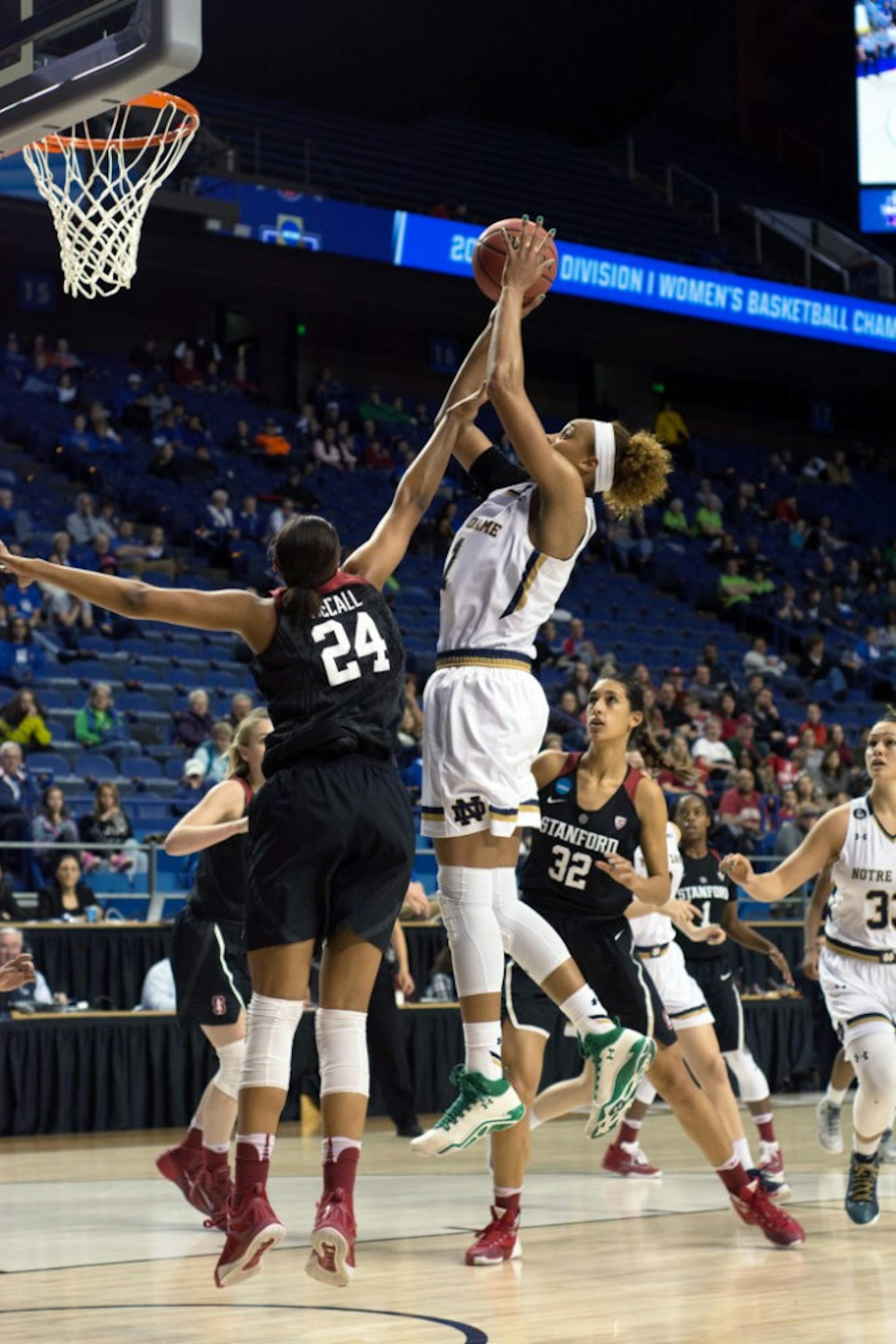
Although the injury threatened to require season-ending surgery, Turner would only miss six games. During that stretch, the Irish went 5-1 while playing four games against ranked opponents. They fell to the eventual national champion, Connecticut, 91-81, UConn's smallest margin of victory en route to an undefeated season. The Irish also secured wins over Ohio State, UCLA and DePaul, all of whom finished in the top-20 of the season’s final AP Poll.
“It was a fabulous stretch for us, and I thought it gave us a lot of confidence,” McGraw said. “In fact, we probably gained as much confidence from that, playing without Bri and winning — I think that’s probably what really brought us together. I think we had a really close bond in terms of our team chemistry, and I think they knew that everybody had to be ready every single night, and they were.”
That confidence led to a 31-1 regular season, including another perfect 16-0 record in ACC play. The Irish were led largely by their offense, which ranked eighth in the nation in points per game and second and third in 3-point and overall field goal percentage, respectively. But the offense didn't revolve around one player, as it often did last season through Loyd. Rather, the Irish had four players average double-figures in scoring and had seven different players led the team in scoring in at least one game throughout the year, demonstrating the team’s ability to come together and replace the superstar it lost in Loyd.
“Really, it was that kind of year where you just needed everybody, and everybody played a really good role, so everybody contributed, and we wouldn’t have been the same team without any of them,” McGraw said.
In particular, the team had to rely upon contributions from players who were thrust into larger roles from the previous season, such as graduate student guard Madison Cable and senior guard Hannah Huffman, McGraw added.
“It was a lot of fun to watch people blossom,” McGraw said. “You saw Madison Cable come up and have a year that no one expected from her — to be MVP of the conference tournament, to be our second leading scorer, to be someone who made so many big plays and may not have had that opportunity had Jewell come back. And to see our seniors — Hannah Huffman had a great year. We just had so many people come out and overachieve to replace what we lost, and it was a fun year.”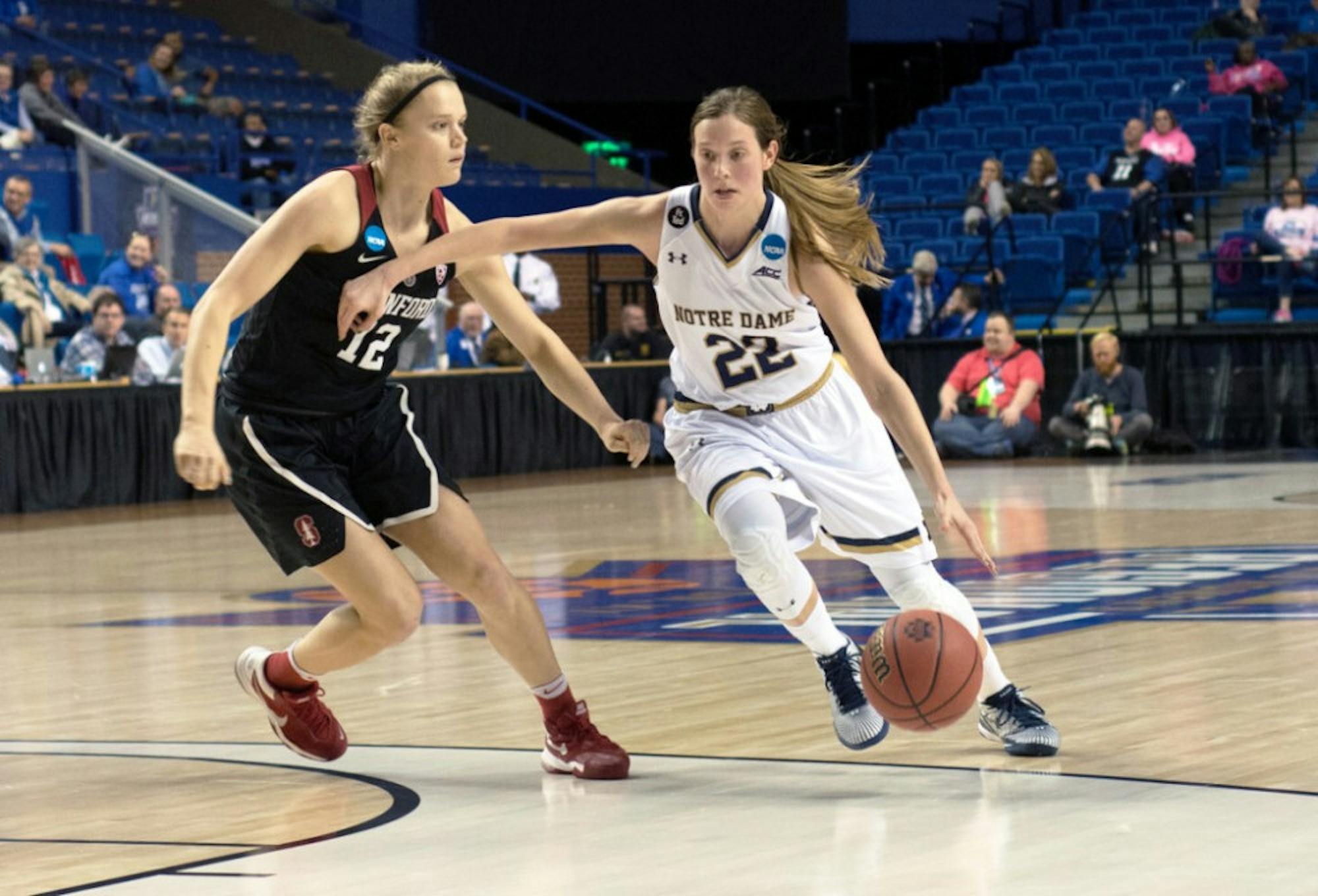
The Irish also had to count on their two freshmen guards, Marina Mabrey and Arike Ogunbowale, to step up and have an immediate impact due to Loyd’s departure and the injury to Patberg, but McGraw thought they more than delivered for the team.
“I think they’re very talented,” McGraw said of Mabrey and Ogunbowale. “Both of them were McDonald’s All-Americans coming in, and again, the departure of Jewell and the unexpected injury to [Patberg] opened up some spots for the guards to play, and they certainly were ready. We told them to be ready back in the spring when Jewell decided to go to the draft, so I think they came in knowing ‘A lot is expected of us, so we need to be ready,’ and they were. They both had great years, and I was really pleased. We wouldn’t have been as successful without them.”
And once all those pieces came together into their roles, the Irish rotation was able to find its rhythm and produce all the way through the ACC tournament.
“I think it just happens naturally as you go throughout the season,” rising senior guard Lindsay Allen said on March 14 on how the rotation came together during the year. “At first, we’re still kinda getting used to how the rotation is during games, how coach is subbing, who’s first off the bench, who’s the defensive group, who’s the offensive group, and kind of just figuring out how each of us fits in the offense. But once you have that settled, it’s kind of just like it’s a seamless rotation. We’re getting on transition, and everyone knows what the other person is gonna do out there on the court. We’re running in transition, we’re really just flowing offensively and defensively as we grow throughout the season, so it’s been great to see.”
And that seamless rotation found success all the way until it met Stanford in the Sweet 16. A slow first half defensively put the Irish in a hole that they were unable to crawl their way back out of in the second half, falling just short of a comeback in the 90-84 defeat. Three Notre Dame players — Cable, Huffman and senior guard Michaela Mabrey — played their final game in blue and gold in the loss, and McGraw said the team will miss what they brought to the court each and every game.
“They were phenomenal, and, honestly, the toughest thing to replace is the intangibles that they brought to the team,” McGraw said. “Not just leadership — which was great — but their toughness, their sense of urgency, their poise, their experience and they just knew what to do in every situation and knew how to handle every situation. They just brought all those things to our team, and without them, we’re going to struggle in some areas next year. You can replace points and rebounds, but trying to replace the intangibles that they brought to our team is early on going to be difficult and put a lot of pressure on people to get out of their comfort zone.”
As the Irish look ahead to next season, they will be returning plenty of talent and bringing in even more with its two top-15 recruits, forward Erin Boley and guard Jackie Young. The key to translating that talent into a winning season, however, will lie in finding players who can bring those same intangibles that they lost in this year’s senior class.
“We’re hoping it develops in the summer, and certainly [Lindsay Allen] will take the brunt of that responsibility — I mean, she did quite a bit this year,” McGraw said. “She will be alone initially, so the question is ‘Who’s going to step up?’, and I think that entire class of [rising] juniors [will] — we’ve got four really solid juniors who have some leadership potential. I think it’s going to be interesting, and we’re going to have to guide them and give them some help to bring that leadership out because I think they’re all capable of doing some of the work and helping Lindsay.”



